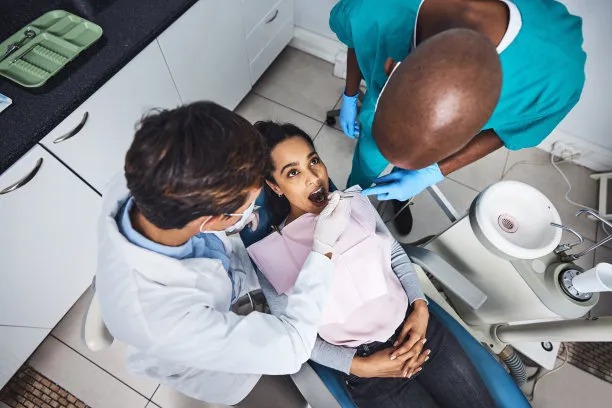Essential Guidelines to Follow Before and After Receiving a Dental Filling for Optimal Oral Health Care
Summary: Receiving a dental filling is a common procedure aimed at restoring teeth affected by cavities or decay. However, the success of the treatment relies heavily on the care taken before and after the process. This article outlines essential guidelines designed to optimize oral health care related to dental fillings. We will delve into crucial aspects such as pre-treatment preparations, post-treatment care, dietary considerations, and the importance of follow-up visits. Following these guidelines can enhance recovery and ensure the longevity of your dental filling.
1. Essential Preparations Before Your Appointment

Before heading to your dental appointment for a filling, it is vital to gather all necessary information about your oral health. This includes details about any allergies, medications you are currently taking, and your dental history. Share this information with your dentist to enable them to customize the treatment plan based on your needs.
Next, consider discussing any concerns you might have with your dentist beforehand. Understanding the procedure helps alleviate anxiety associated with dental visits. Dentists often provide insights about the filling materials being used and what you can expect during the procedure, which can greatly improve your peace of mind.
Another useful tip is to arrange for transportation after your appointment. Depending on the type of anesthesia used, you might feel groggy or disoriented. Having someone to drive you home can help ensure your safety and comfort following the procedure.
2. Key Aftercare Steps for Optimal Recovery
After receiving a dental filling, its crucial to follow proper aftercare guidelines to promote healing and ensure the filling lasts. For the first few hours, avoid eating or drinking to allow the filling to set properly. If you feel numbness in your mouth from anesthesia, there is a risk of biting the inside of your cheek or tongue.
Once the numbness wears off, be mindful of the types of food you consume. Stick to softer foods for a couple of days to prevent putting excessive pressure on the new filling. Foods like yogurt, mashed potatoes, or smoothies can be gentle options while you recover.
Additionally, maintain a good oral hygiene routine after the filling. This includes gentle brushing and flossing. Avoiding harsh brushing on the treated area helps in preventing discomfort while still keeping the mouth clean.
3. Dietary Considerations Post-Filling Treatment
After getting a dental filling, dietary choices can significantly affect both comfort and recovery. It is important to avoid very hot or cold foods, as temperature sensitivity can be heightened in the days following the procedure. Foods with strong flavors may also cause discomfort due to the sensitivity of the filled tooth.
Sugary and hard foods should also be avoided in the initial days post-treatment. Hard foods could put stress on the filling, causing it to dislodge or crack. Sugary foods can contribute to cavity formation around the filling site, counteracting the purpose of the filling.
Instead, focus on a balanced, nutritious diet rich in calcium and vitamins to support oral health. Foods like leafy greens, nuts, and dairy products can help strengthen teeth while the filling settles into place.
4. Importance of Follow-Up Visits for Oral Health
After receiving a dental filling, scheduling a follow-up visit is crucial. A post-treatment examination allows your dentist to ensure that the filling is properly positioned and functioning as intended. It is also an opportunity to address any concerns you might have experienced since the filling.
Regular dental check-ups, particularly after receiving fillings, also help in catching any potential issues early, such as signs of decay around the filling or pain that may indicate an underlying problem. Dentists can offer additional treatments if necessary to address such issues and preserve your oral health.
Following up allows your dental care practitioner to monitor the overall health of your teeth and gums, ensuring that everything remains in good condition. This proactive approach can lead to longer-lasting results from your fillings and a healthier mouth overall.
Summary:
In conclusion, ensuring optimal oral health care before and after receiving a dental filling is paramount for long-lasting results. By adhering to the essential guidelines discussed—pre-treatment preparations, proper aftercare, dietary considerations, and the importance of follow-up visits—patients can significantly enhance their recovery and maintain their oral health.
This article is compiled by Vickong Dental and the content is for reference only.



